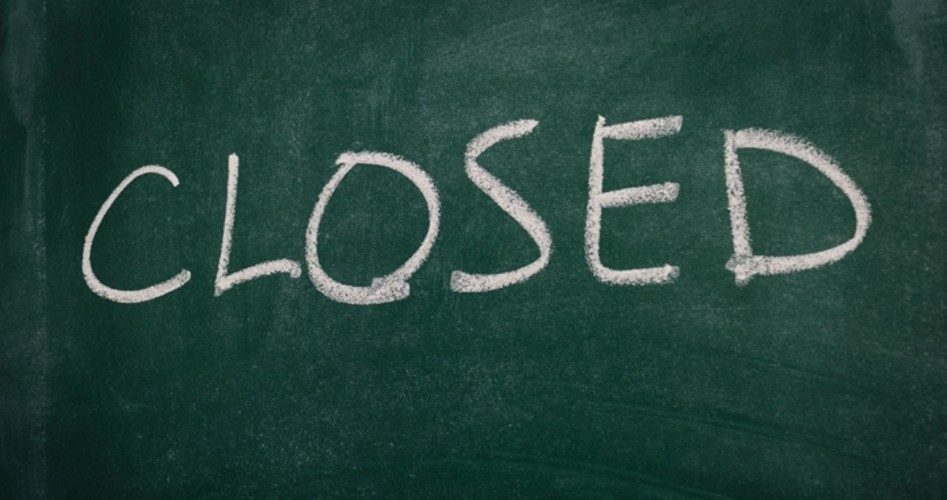
Would it make sense to let McDonald’s franchises decide whether Burger King can do business in their areas? This is essentially the situation created, say critics, by a November New York State Department of Education guidance empowering local government schools to assess the curricula of private schools in their districts and then determine whether they’re fit to operate.
Among other things, the onerous guidelines would “give the school district control over teacher’s accreditation, and mandate inspections from public school officials. If not abided by, the guidelines threaten the loss of student-based funding, school transportation, and even eventual closure,” according to New York City councilman Chaim Deutsch.
While the new guidelines affect all New York State private schools, they actually stemmed from a 2015 survey purporting to find that “some ultra-orthodox Jewish yeshivas were barely teaching their students English or other secular subjects,” reports the Albany Times Union. “But since the state couldn’t single out yeshivas, the guidelines apply to all non-public schools.”
Critics respond, however, that such yeshivas are outliers. In fact, a recent analysis of New York State Regents exam scores shows that, unsurprisingly, yeshiva students greatly outperform government-school pupils.
Speaking of which, state officials announced in a press release that local public schools “have the responsibility to ensure that the education received by nonpublic school students is substantially equivalent to that received in district public schools.”
Yet how can this be accomplished? Will private-school education have to be dumbed down and sexed up?
After all, parents spend money on private schools precisely because they don’t offer an equivalent education — but a superior one. Reflecting the yeshivas, private schools as a group also outperform government ones.
In fact, the New York State government apparently has an odd definition of “equivalent.” For the guidance actually mandates “that private schools provide more hours of instruction than public-school counterparts,” reports Reason.
The magazine continues, “‘The state government now requires private schools to offer a specific set of classes more comprehensive than what students in public schools must learn,’ Elya Brudny and Disraeli Reisman, deans of two Brooklyn-based yeshivas, point out in the Wall Street Journal. ‘Our schools must offer 11 courses to students in grades 5 through 8, for a total of seven hours of daily instruction. Public schools have less than six hours a day of prescribed instruction.’”
My, someone could get the crazy idea that the government is trying to squeeze religious teaching out of faith-based schools by denying them the time that is now devoted to it. But, hey, maybe that’s just paranoia.
Worse still, the state guidance can be used to punish not just private schools but also their students, stating that they “‘will be considered truant if they continue to attend’ a private school deemed deficient,” Reason further informs.
Critics also could wonder where this will lead. The Times Union states that the aim is to ensure that private-school students are exposed “to the same basic topics such as English and math, that are covered in public schools.” Yet a truly “substantially equivalent” education could also mean replicating the lewd and improper sex education permeating government schools and, perhaps one day, their prohibition against inculcating faith.
Under this plan, will private schools eventually be forced to teach not just the government-schools’ garden-variety isms, but also that homosexuality and “transgenderism” are normal and healthful?
Will they be told in the future that “inclusiveness” imperatives dictate they mustn’t inculcate a given faith?
Pundit Ben Shapiro addressed the leftist moral inversion, writing Wednesday, “More fascinating than this [N.Y. schools] debate, however, is the generalized attitude toward parenting expressed by the social left. If you choose to send your child to a non-approved yeshiva, you must be policed and your child threatened with truancy. If, however, you are a parent who decides to expose your 11-year-old son to risk of sexual perversion, then you’re open-minded and noble.”
“What else are we to take from the story of Desmond Napoles?” Shapiro continued. “Napoles is an 11-year-old boy who dresses in drag for national press, and who was squired — presumably by his parents — to a gay bar in Brooklyn, New York, called 3 Dollar Bill, where grown men proceeded to hand dollar bills to him. As writer Matt Walsh has pointed out, were Desmond a girl being paraded by her parents before the leering stares of grown men, child protective services would be called. But since Desmond is a celebrity who has been exploited by his parents, this is all worth celebrating.”
In other words, many of the same people who tolerate the adult use of a pubescent boy as a sex object (pederasty, or “hebephilia”), presume to be able to tell everyone else what constitutes proper parenting and schooling — and they’ll enforce their perversions at the end of a gun.
The good news is that those under the gun are fighting back. Leaders of New York’s more than 500 Catholic schools intend to boycott the new review system. While taking no issue with having state officials conduct reviews and school inspections, “We simply cannot accept a competing school having authority over whether our schools can operate,” said James Cultrara, executive secretary of the state Council of Catholic School Superintendents.
Why should they? Again, we may as well empower McDonald’s to decide if Burger King should operate.
But at least McDonald’s provides a good product. Only in an upside-down world would government schools be given veto power over private ones, despite the latter being well known for delivering a far superior and more moral education. It’s a bit like having the Marquis de Sade teaching sexual ethics to Mother Cabrini or an idiot instructing Einstein.
Photo: mzamur/iStock/Getty Images Plus

